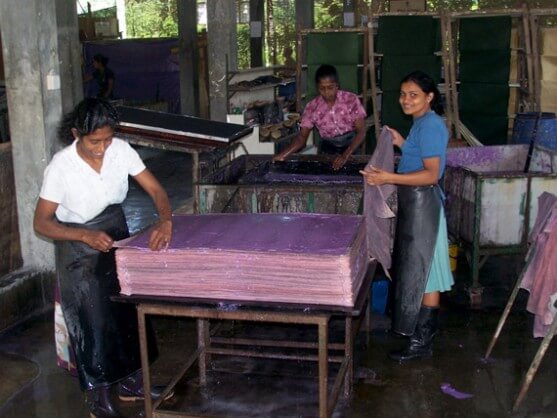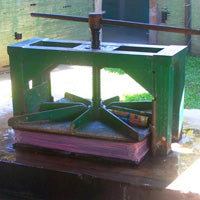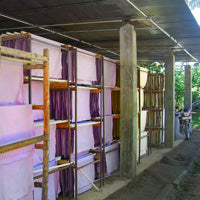Elephant Dung Paper
Although I use my own handmade papers in my work, I also use a lot of other handmade and recycled papers and one of my favourites is the beautiful range of Maximus Elephant Dung Paper.

This gorgeous paper is not only handmade and eco-friendly - it is also a fair-trade certified product that benefits the local community and helps to protect Sri Lanka's endangered elephants.
 Maximus began with just 7 employees, and was originally set up to make recycled paper from office waste, as well as rice-paddy stubble and banana plants.
Maximus began with just 7 employees, and was originally set up to make recycled paper from office waste, as well as rice-paddy stubble and banana plants.
However, the paper-making centre happened to be located near an elephant sanctuary, and it was soon discovered that the cellulose-rich dung from the resident elephants was an excellent ingredient for making paper! Hence, Maximus Elephant Paper was born.
The paper is handmade, using traditional paper-making techniques, with no toxic chemicals or acids used in production.
The dung is first sun-dried, then boiled in a special pressurised container to kill any bacteria.
Office waste paper is then added to the dung fibres, which make up about 80% of the paper's content. This mixture is pulped, and then formed into large sheets on a special mould, before being pressed and dried in the shade.
The colours in the paper are obtained by the addition of natural salt dyes. No bleach or acids are used in the production process.



The success of the elephant paper line resulted in the original centre at Kegalle being expanded to employ around 35 people, and a second base has now been established in Dambulla, close to the wild elephant migration trail. Here, the company employs the local people to collect the wild elephant dung, which is then turned into paper. In rural Sri Lanka, there is a lot of conflict between the wild elephants and local farmers, who compete for scarce land and other resources, and the elephants are under serious threat. However, by educating the local people about the value of the elephant dung paper and employing them to help create it, the company's "Peace Paper" project aims to improve their socio-economic situation, as well as changing their attitudes towards the elephants.
Proceeds from the sale of the elephant paper help to fund the Millennium Elephant Foundation, which supports the elephant sanctuary in Kegalle. The foundation is also affiliated with the World Society for the Protection of Animals, and through various projects, helps to raise awareness, to improve the welfare of Sri Lanka's working elephants, and to ensure their conservation in the wild.

Maximus was the winner of the 2006 BBC World Challenge
and was awarded Co-op America's Green Business of the Year Leadership Award in 2008.
Little Deer Studio is proud to be associated with this wonderful product.
